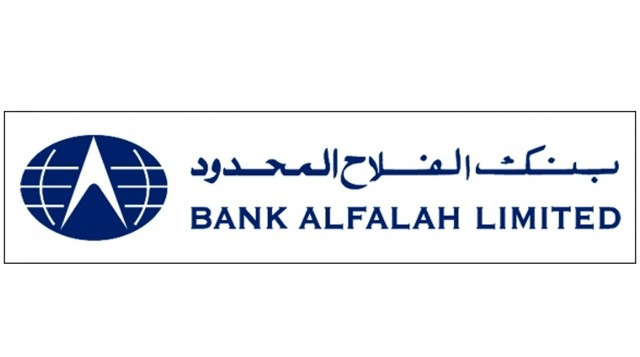Corporate results: Bank Alfalah profit triples in 2011
Higher interest rates help revenues, lower provisions for bad loans keep balance sheet healthier.

The core reason for the jump in Bank Alfalah’s profits was the sharp rise in the net interest margin – the difference between what the bank charges its borrowers and what it pays out to its depositors. The net interest margin for the bank rose by about 36% to Rs18.6 billion on the back of higher interest rates during 2011 as well as a sharp rise in the bank’s deposit base, which has allowed it to increase lending.
The Karachi Interbank Offered Rate (Kibor) – the benchmark interest rate in the Pakistani financial sector – was higher by an average of 60 basis points in 2011 compared to 2010, according to Bilal Qamar, a research analyst at JS Global Capital, an investment bank. One basis point is one-hundredth of one percent.
“Provisions for non-performing loans have been lower across the banking sector this year,” Qamar told The Express Tribune. “In addition, remittances have been very high, which helps the banks with their fee income, raising their non-interest revenues.”
Yet while Bank Alfalah appears to be the beneficiary of overall favourable outcomes in the market, the bank has also reaped the rewards of its own strategy of relentless growth.
“Bank Alfalah is fundamentally a growth story,” said one portfolio manager at a large asset management company, who declined to be identified. “They open around 20 to 30 branches every year to keep expanding their deposit base.”
Much of those increased deposits have been parked into government bonds, a trend in which Bank Alfalah is no different from most other banks, which have also increased their holdings of treasury bills over the last year. As a result, the bank has cut back its total lending to the private sector in 2011.
Despite the stellar growth in revenues, however, Bank Alfalah has been able to keep the growth in its operational costs relatively low. Total operational costs rose by about 11.5%, on par with inflation during the past year. This is despite the fact that the bank continued to add branches, with at least four new branches opening in 2011, taking Bank Alfalah’s nationwide network to 390.
The bank also benefits from having a captive client base: it can rely upon the deposits and lending needs of its fellow subsidiaries of the Abu Dhabi Group in Pakistan, which include the likes of Warid (mobile telecommunications), Wateen (network infrastructure and internet) and Alrazi Healthcare.
For much of last year, however, the bank’s stock – which is listed on the Karachi Stock Exchange – did not garner much attention and was underperforming the benchmark KSE-100 index. It was not until October, when the bank announced its third quarter earnings, that Bank Alfalah stock began to perform. Since then, the stock has rallied 35%, handily outpacing the broader market, which rose by a slower 12.4%
Friday’s earnings announcement was greeted with a rally on the Karachi Stock Exchange, with Bank Alfalah stock closing the day’s trading at Rs14.53, up Rs1 or about 7.4%, the highest increase allowed in one day according to the KSE’s trading rules. Volume was also healthy, with nearly 8.8 million shares trading hands.
As for where the stock is headed next, some portfolio managers believe that Bank Alfalah will likely continue rallying till it hits Rs20 or Rs21 per share.
Published in The Express Tribune, March 3rd, 2012.



















COMMENTS
Comments are moderated and generally will be posted if they are on-topic and not abusive.
For more information, please see our Comments FAQ